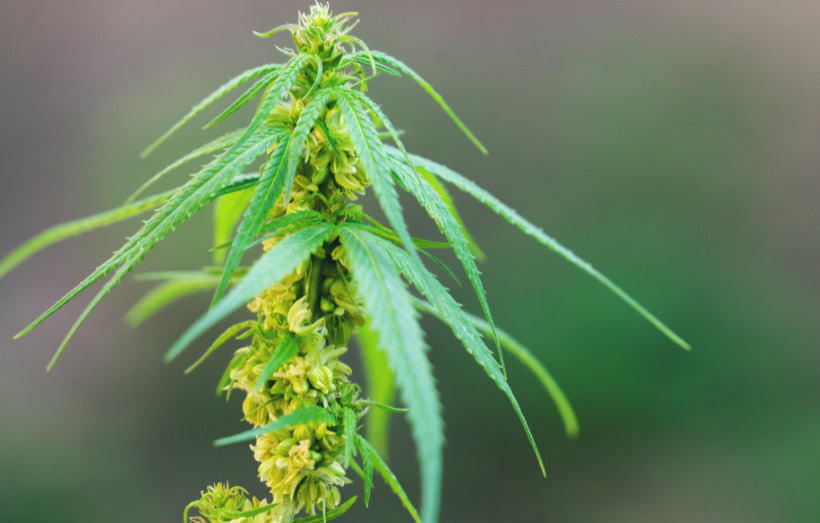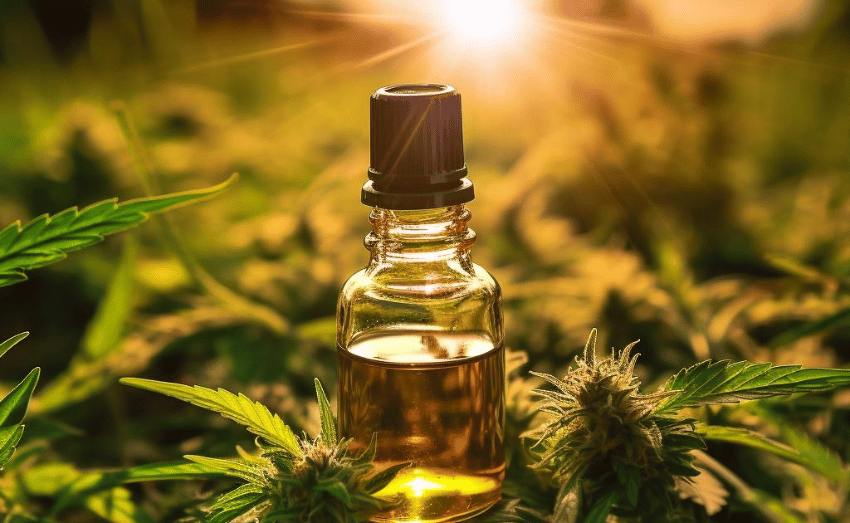Understanding cholesterol and how to manage it is vital for overall health. While there are several ways to control cholesterol, there has been growing interest in natural solutions, such as hemp seed oil.
What is Hemp Seed Oil?
Hemp seed oil is extracted from the seeds of the hemp plant through a process called cold-pressing. Although the hemp plant and the marijuana plant are from the same family, they are fundamentally different. The key difference is in their THC content; THC is the psychoactive substance that gives a “high.” While marijuana contains high THC levels, hemp contains less than 0.3% THC, making it non-psychoactive.
History of Hemp Seed Oil Use
When we talk about hemp seed oil, we’re tapping into an ancient tradition. Imagine a world without modern medicine, where civilizations like the Chinese and Egyptians relied on nature for health solutions. Hemp seeds were among their go-to remedies.
They weren’t just munching on these seeds for fun. They recognized that these tiny seeds packed a punch in health benefits. From adding them to their diets for better nutrition to concocting medicinal mixtures for various ailments, hemp seeds have been in the human health toolkit for millennia. This long history of use isn’t just a trend; it’s a testament to hemp seed oil’s enduring value.
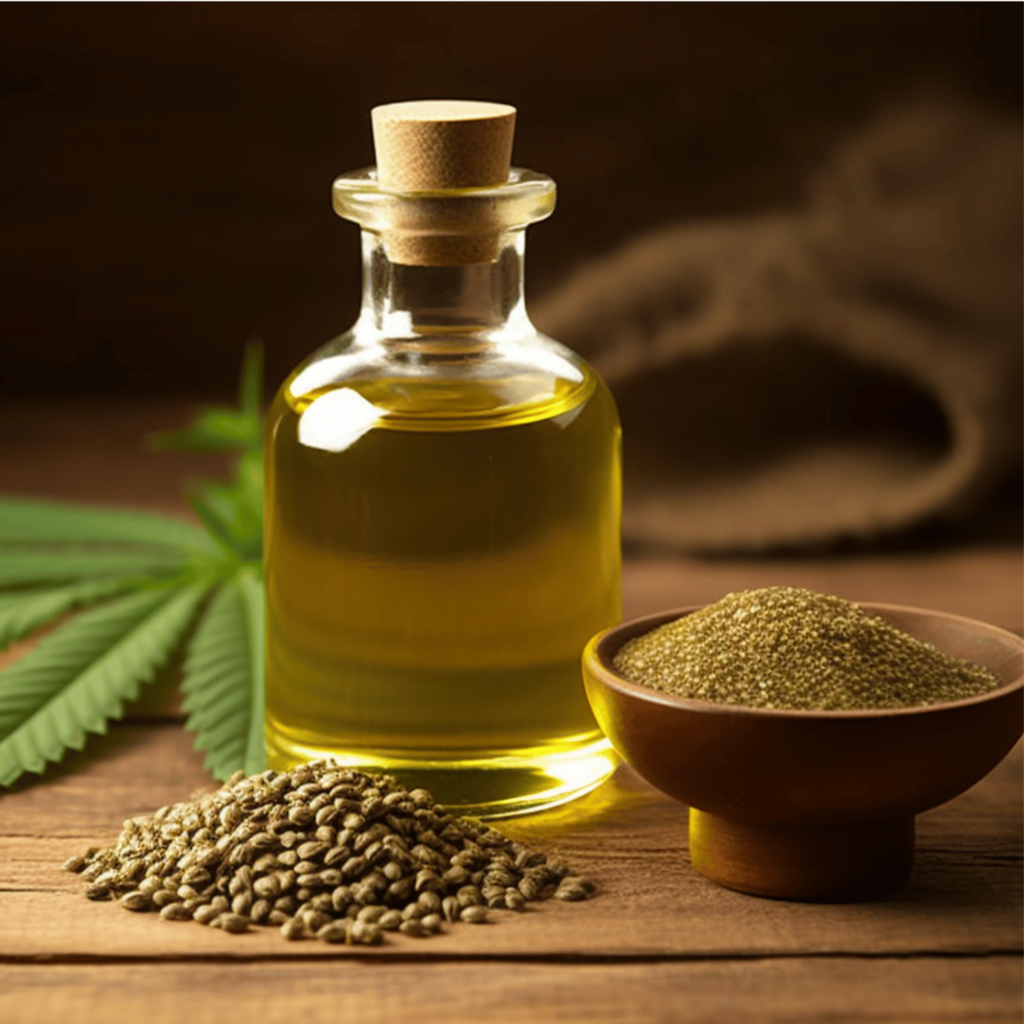
How Does Hemp Seed Oil Work?
Let’s liken hemp seed oil to a super nutritious smoothie. But instead of fruits and veggies, this smoothie is loaded with things called fatty acids. Now, don’t let the term “fatty” scare you off; these are the good kind of fats!
Hemp seed oil is special because of three-star players:
- Linoleic Acid: Think of this as a shield for your skin. It helps maintain a protective layer on the skin, preventing water loss and protecting it from harmful elements.
- Alpha-linolenic Acid: This one’s like a guardian for your heart. It’s a type of Omega-3 fatty acid, which several studies suggest might help protect against heart diseases.
- Gamma-linolenic Acid: This fatty acid is like a peacekeeper, potentially helping reduce inflammation in our bodies.
But what makes hemp seed oil even cooler is its balance. The ratio of omega-6 to omega-3 fatty acids is 3:1. Imagine it like a perfectly balanced see-saw. Experts think this balance is just right for our health, especially for reducing inflammation and promoting heart health.
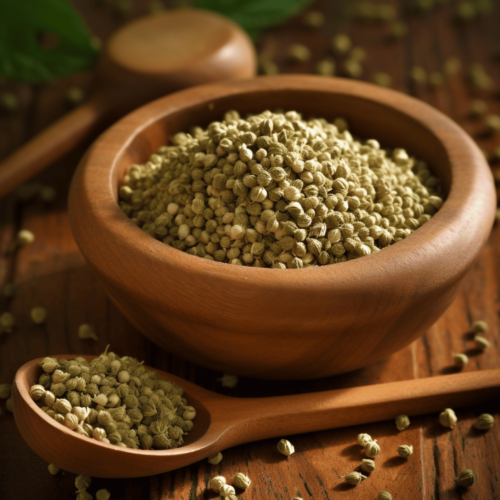
Can Hemp Seed Oil Reduce Cholesterol?
Research suggests that hemp seed oil could indeed help in reducing cholesterol levels. Here’s why:
- Rich in Linoleic Acid: Hemp seed oil is abundant in linoleic acid. Studies have shown that a diet high in linoleic acid can significantly reduce total cholesterol and LDL cholesterol, the “bad” cholesterol. Lower cholesterol levels decrease the risk of high blood pressure, stroke, and heart disease.
- Presence of Beta-sitosterols: Hemp oil contains beta-sitosterols, compounds that have been found effective in lowering cholesterol levels.
Other Benefits of Hemp Seed Oil
Aside from potential cholesterol-reducing properties, hemp seed oil offers other health benefits:
- Improved Skin Health: It can be beneficial for various skin conditions, including eczema, psoriasis, and acne.
- Lower Blood Pressure: The omega-3 fatty acids in hemp seed oil can help reduce blood pressure in those with hypertension.
- Weight Regulation: Being high in dietary fiber, hemp oil could be a helpful ally in weight management.

Is Hemp Seed Oil Safe?
While hemp seed oil has many benefits, there are a few things to keep in mind:
- Topical Use: Some people may experience mild irritation when applying it to the skin. It’s recommended to do a patch test first.
- Oral Consumption: As hemp oil is high in fat, consuming it in large quantities may lead to digestive problems. Also, it could interact with blood thinners, so it’s essential to consult a healthcare professional if you are on medication.
Distinguishing Hemp Seed Oil from CBD Oil
A common misconception is equating hemp seed oil with CBD oil. It’s crucial to understand the differences:
- Source: Hemp seed oil is derived from the seeds, while CBD oil is extracted from the plant’s leaves, flowers, and stems.
- Composition: Hemp seed oil doesn’t contain CBD or THC, while CBD oil contains significant amounts of cannabidiol (CBD) and may have trace amounts of THC.
- Uses: Hemp seed oil is often used for its nutritional benefits, while CBD oil is primarily for therapeutic purposes, such as pain relief and anxiety reduction.

Culinary Uses of Hemp Seed Oil
Besides health benefits, hemp seed oil also has culinary applications:
Flavor Profile: It has a nutty, earthy flavor, making it a delicious addition to salads, smoothies, and dips.
Cooking Caution: While it’s excellent for cold dishes, it’s not recommended for frying or high-heat cooking as it has a low smoke point.
Incorporating Hemp Seed Oil into Your Diet
If you’re considering adding hemp seed oil to your diet for its cholesterol-lowering benefits or other health reasons, here are some tips:
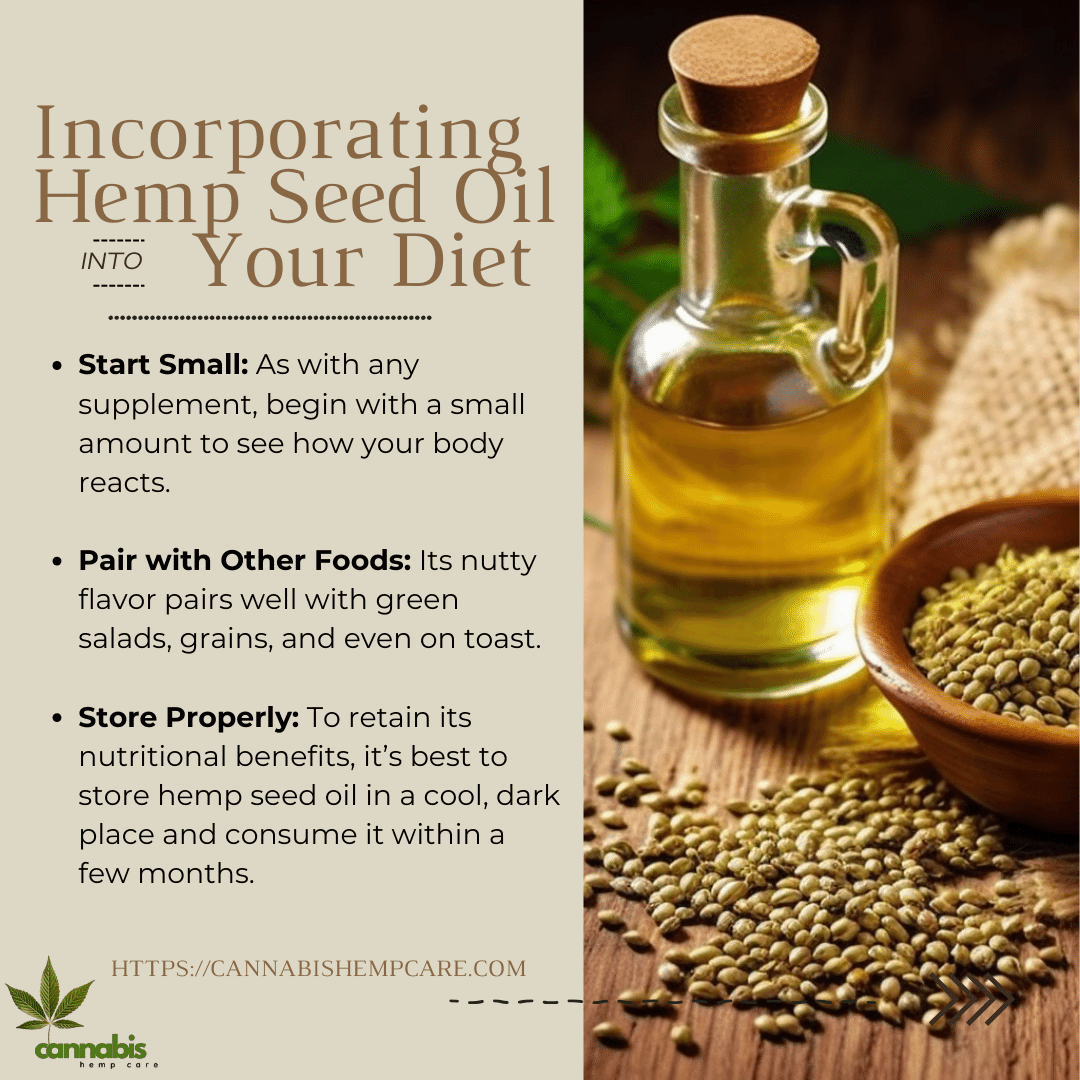
- Start Small: As with any supplement, begin with a small amount to see how your body reacts.
- Pair with Other Foods: Its nutty flavor pairs well with green salads, grains, and even on toast.
- Store Properly: To retain its nutritional benefits, it’s best to store hemp seed oil in a cool, dark place and consume it within a few months.

In Conclusion
Hemp seed oil could be a beneficial natural solution to help reduce cholesterol levels due to its content of linoleic acid and beta-sitosterols. Additionally, it offers other health benefits, including improved skin health, lower blood pressure, and weight regulation. However, it’s important to use it cautiously, especially if you’re trying it for the first time or are on specific medications. As always, it’s essential to consult a healthcare professional before starting any new supplement.
FAQs
Can I take hemp seed oil every day?
Yes, you can take hemp seed oil every day. However, it’s important to start with a small amount and gradually increase it to avoid any digestive issues. It is also crucial to consult a healthcare professional before adding hemp seed oil or any other supplement to your daily routine.
Does hemp seed oil lower triglycerides?
There is some evidence that the omega-3 fatty acids in hemp seed oil may help reduce triglyceride levels in the blood. Triglycerides are a type of fat linked to heart disease. Omega-3 fatty acids have been shown to lower triglycerides and improve heart health.
Does hemp oil help your heart?
Hemp seed oil is rich in linoleic acid and alpha-linolenic acid, both of which have been linked to heart health. Linoleic acid is associated with reduced cholesterol levels, which may lower the risk of heart disease. Alpha-linolenic acid is a type of Omega-3 fatty acid, which studies suggest may protect against heart diseases.
Should you take hemp seed oil before or after food?
It’s generally recommended to take hemp seed oil with food, as it can increase the absorption of the oil and reduce potential side effects like digestive upset. You can mix it into smoothies, and salad dressings, or take it as a supplement with your meals.
Is too much hemp oil bad for you?
While hemp seed oil has many benefits, excessive consumption can cause digestive issues due to its high fat content. Additionally, it could interact with certain medications, such as blood thinners. It’s essential to consult your healthcare provider for a suitable dosage and ensure there are no contraindications with any medications you are taking



































